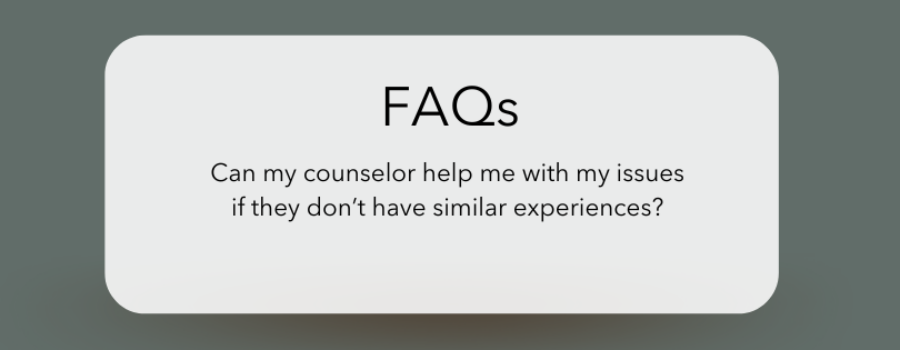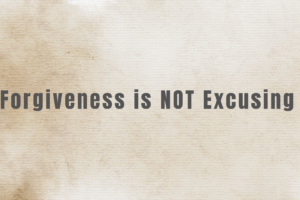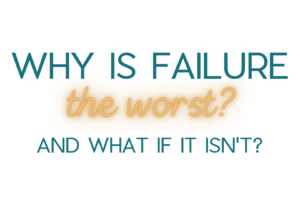on whether counselors can help clients when they don’t share life experiences
We get a lot of questions at Full Life pertaining to what we believe, how we will counsel clients, and even about our expertise on particular issues. We’ve been answering some of those questions in this blog series. Clients often wonder, “can my counselor help me with an issue I’m dealing with if they haven’t gone through something similar?”
Some specific examples of this question may be:
- Can an unmarried therapist work with a married person or couple?
- Can a person who isn’t a parent help a client learn good parenting skills?
- Can someone who hasn’t struggled with addiction help addicts in recovery?
And let’s be honest, these are fair and good questions because part of the knowledge one has often comes from lived experiences. We can learn what to do or not to do after experiencing something difficult. Some might call that “street cred”. There is something about sharing experiences with others, too. It can help us feel seen and understood, like we’re not alone, and clients might need to know they’re not alone more than anything else.
But having knowledge or wisdom pertaining to a certain topic doesn’t just come from lived experiences. Sometimes our lived experiences can actually get in the way of us navigating difficult relationship issues, parenting battles, or maybe even an addiction.
Before becoming licensed counselors and therapists, we attend graduate school and take classes on an array of topics. Some of these topics include marriage and family concerns, multicultural issues, professional ethics, counseling techniques, and psychopathology. These classes teach us necessary “head” knowledge (that isn’t always “lived” knowledge) so we can help clients dealing with a variety of issues, even if we have never personally walked through similar experiences.
Counselors are also required to do continuing education and supervision after graduate school, and many will get specialized training to teach them evidence-based therapy models, interventions, and skills to assist clients with many different relational issues, unresolved trauma or grief, and various mental health difficulties, among other things. This education and training is what gives counselors the expertise to help clients with issues the counselors might not have personally experienced.
This knowledge is extremely important because it provides counselors with a deeper understanding of what our clients may experience and how to help them, but two of the most vital skills that bring our “head” knowledge and therapeutic abilities together are empathy and listening.
As counselors, we’re trained to listen attentively to client’s pain, concerns, and stories, and we’re able to connect with them whether or not we share experiences. We would argue that sometimes having little to no experience with what our clients are bringing in allows us to demonstrate non-biased and non-judgmental curiosity and can prevent any countertransference. Countertransference occurs when a counselor reacts or responds to a client from their own personal experiences or unresolved issues or when a client’s story or actions remind the counselor of a painful part of their own story. Unchecked countertransference can hinder a counselor to the point they are unable to remain curious about their clients’ concerns.
Remaining curious with little to no bias prevents us from assuming what they may be feeling, thinking or hoping for. If we had lived through a similar experience, there can be a temptation to assume we know exactly what someone may be feeling, thinking or living. But as licensed professional counselors or therapists, it’s our job and duty to avoid those assumptions and biases because they can be harmful.
Counselors are expected and trained to be as equipped as possible for what clients bring to the counseling room. There are, of course, exceptions that may be out of our scope of training, and in those cases we would refer a client to someone who’d be a better fit.
However, clients are also allowed to “feel out the initial session” with a counselor and see if it’s a good fit. If clients have concerns about a counselor’s ability to handle what they’re dealing with, they can make those concerns known to their counselor. A therapeutic relationship is built on safety, trust, and openness, and clients with unspoken concerns might not get all they need out of therapy if they believe their counselor may lack the competency to help them.
So essentially, the answer to the questions mentioned above is “yes.” An unmarried counselor can help couples if they’ve had the training and education to do so. This is the same for non-parents or counselors who’ve never struggled with addiction and any other concern. Ultimately, clients shouldn’t assume that a counselor isn’t a good fit simply because they don’t share similar life experiences, but it is just as important to express your concerns if you believe they will negatively impact your therapeutic relationship and process.
Disclaimer: We love creating content that inspires and encourages our readers to prioritize their mental health. However, please note that our content is for informational and motivational purposes only and is not intended to replace professional counseling, therapy, or medical advice. Always seek the guidance of a qualified mental health professional for any concerns or treatment.






Recent Comments